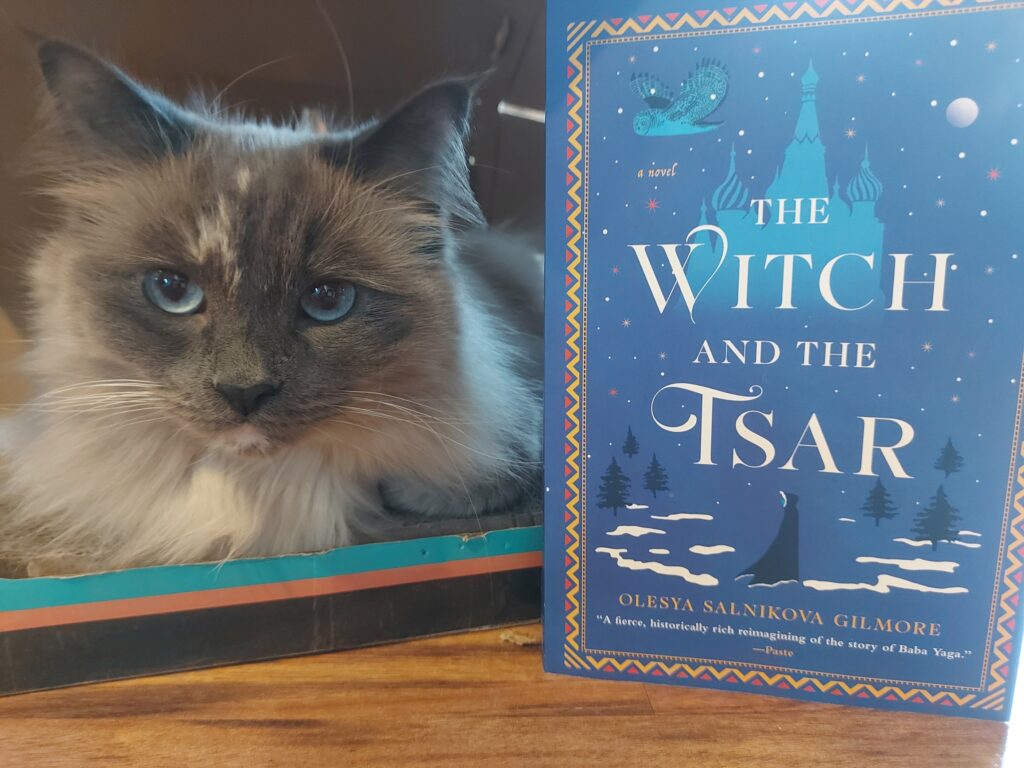The Witch and the Tsar by Olesya Salnikova Gilmore

The Witch and the Tsar has all the makings of a novel that I would like: historical fiction, magical realism, an interesting back story featuring a mythology I am not familiar with, and a strong female protagonist; however, I just was not that into it. I did not think about not finishing The Witch and the Tsar, but I was not excited to get back to reading it every night before bedtime.
The Witch and the Tsar is a feminist reimagining of the Baba Yaga story. If you are not familiar with Baba Yaga, she is a figure from Slavic folklore who is usually depicted as an evil old crone who eats children. While researching Baba Yaga, Gilmore discovered that before her story was co-opted by the men who wrote most of the 19th century fairy tales that we are all familiar with, Baba Yaga may have been a fertility and earth goddess, so Gilmore makes the Baba Yaga of her novel, known simply as Yaga, into a half immortal goddess/half human being with magical powers who is young and beautiful (of course).
Like the Baba Yaga of folklore, Yaga lives alone in the woods in a hut that has chicken legs. She concocts magical cures for the humans that come to her for help, but she still has a reputation for being a witchy old hag despite her youth and beauty. One day Yaga is visited by an old friend, Anastasia, who is the wife of Tsar Ivan, because she has been poisoned by an unknown enemy at court. Anastasia and Ivan are based on real life historical figures. Ivan the Terrible was the first Tsar of Russia, and Anastasia was his first wife. Ivan was infamous for his tyranny, madness, and for brutally slaughtering thousands of people during his reign.
Yaga decides to leave her little hut in the woods to travel to Moscow and assist Anastasia. She then finds herself caught up in stopping Ivan the Terrible in his quest for power as it turns out he is being manipulated by one of the old Slavic gods that no one is supposed to worship anymore because Christianity has become the dominant religion of Russia.
Now, The Witch and the Tsar is an evocatively told story, from the depiction of the Slavic underworlds to the depiction of 16th century Russian life and the violence of Ivan the Terrible’s rule, but I think my problem with The Witch and the Tsar is that I just did not completely buy Yaga’s motivation for involving herself in the mess that humans make of their own lives. Humans have given her a terrible reputation. They have turned their backs on her and the other Slavic gods for the Christian god. They want the use of Yaga’s magic but in the same breath they imprison her and threaten to execute her for being a witch. What I have learned from all the books based on mythology that I have read is that humans are lucky their gods care more for them than they do for their gods, and I just do not understand why the gods bother.